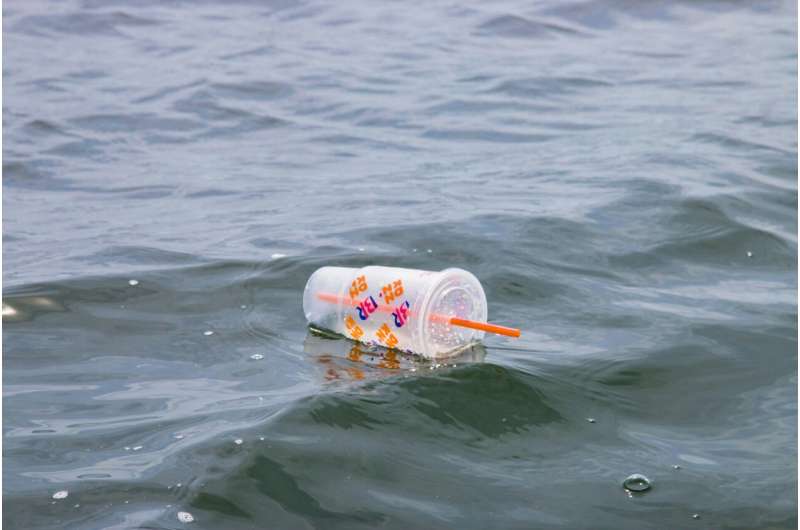Science
Experts Warn Plastic Pollution Poses $1.5 Trillion Health Risk

Plastic pollution has emerged as a significant health threat, costing the global economy at least $1.5 trillion annually, according to a new report published in The Lancet on August 4, 2025. The review, conducted by leading health researchers and medical professionals, coincides with upcoming negotiations in Geneva aimed at establishing the world’s first treaty on plastic pollution.
The report highlights that plastics contribute to diseases and health-related fatalities from infancy through old age. Dr. Philip Landrigan, a prominent researcher at Boston College, emphasized the urgency of addressing this issue, particularly for vulnerable populations such as children. “It is incumbent on us to act in response,” he stated, urging the nearly 180 nations gathered in Geneva to seize the opportunity for effective international cooperation.
Health Impacts and Economic Costs
Plastics have detrimental effects on health comparable to those of air pollution and lead exposure. The review noted that health-related economic losses due to plastic pollution exceed $1.5 trillion each year. Despite its serious implications, the health impact of plastic pollution remains under-recognized.
One alarming aspect of the report is the prevalence of microplastics, tiny plastic particles that have infiltrated ecosystems and human bodies alike. While the full scope of their health effects is still being studied, researchers express growing concern regarding their potential risks.
The production of plastic has escalated dramatically, rising from 2 million tonnes in 1950 to 475 million tonnes in 2022. Projections indicate that this figure could triple by 2060. Currently, less than 10% of all plastic is recycled, underscoring the urgent need for effective waste management strategies.
Connecting the Plastic and Climate Crises
Dr. Landrigan linked the plastic crisis to the broader climate crisis, noting that plastics are derived from fossil fuels. He stated, “There is no understating the magnitude of both the climate crisis and the plastic crisis. They are both causing disease, death, and disability today in tens of thousands of people, and these harms will become more severe in the years ahead.”
The report also introduces a new initiative aimed at tracking the health impacts of plastic pollution, part of a broader series known as The Lancet Countdown. This effort seeks to provide ongoing analysis of the intersection between health and environmental issues related to plastic use.
As negotiations unfold in Geneva, the report serves as a clarion call for immediate action to combat plastic pollution. The health risks associated with plastic are profound, and experts urge global leaders to collaborate in addressing this escalating crisis.
-

 Lifestyle2 weeks ago
Lifestyle2 weeks agoMilk Bank Urges Mothers to Donate for Premature Babies’ Health
-

 Lifestyle2 weeks ago
Lifestyle2 weeks agoShoppers Flock to Discounted Neck Pillow on Amazon for Travel Comfort
-

 Politics2 weeks ago
Politics2 weeks agoMuseums Body Critiques EHRC Proposals on Gender Facilities
-

 Business2 weeks ago
Business2 weeks agoTrump Visits Europe: Business, Politics, or Leisure?
-

 Politics2 weeks ago
Politics2 weeks agoCouple Shares Inspiring Love Story Defying Height Stereotypes
-

 Lifestyle2 weeks ago
Lifestyle2 weeks agoJapanese Teen Sorato Shimizu Breaks U18 100m Record in 10 Seconds
-

 World2 weeks ago
World2 weeks agoAnglian Water Raises Concerns Over Proposed AI Data Centre
-

 Sports3 weeks ago
Sports3 weeks agoBournemouth Dominates Everton with 3-0 Victory in Premier League Summer Series
-

 Lifestyle3 weeks ago
Lifestyle3 weeks agoShoppers Rave About Roman’s £42 Midi Dress, Calling It ‘Elegant’
-

 World3 weeks ago
World3 weeks agoWreckage of Missing Russian Passenger Plane Discovered in Flames
-

 World3 weeks ago
World3 weeks agoInquest Resumes for Jay Slater Following Teen’s Tragic Death
-

 Sports3 weeks ago
Sports3 weeks agoSeaham Red Star Begins New Chapter After Relegation Setback









